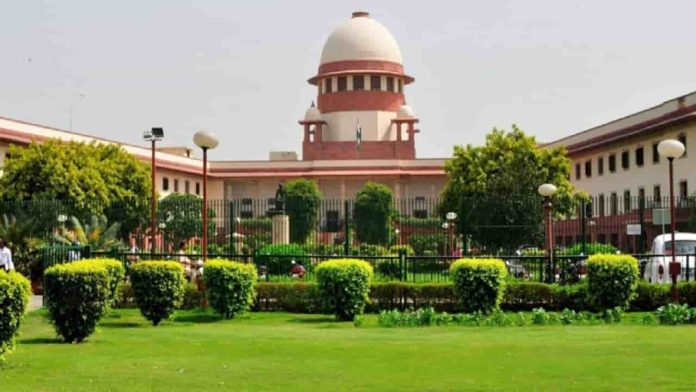A five-judge Constitution Bench of the SUprmee Court led by Chief Justice of India DY Chandrachud on Thursday held the 2018 Electoral Bonds Scheme to be unconstitutional in an unanimous verdict.
Apart from CJI DY Chandrachud, the bench comprised Justice Sanjiv Khanna, Justice BR Gavai, Justice JB Pardiwala and Justice Manoj Misra. The bench also quashed amendments made to the Income Tax Act and the Representation of People Act which had made the donations anonymous.
The electoral bonds scheme allowed anonymous donations to political parties. In his judgment, the CJI said they have found the Electoral Bonds Scheme to be unconstitutional in nature.
The bench said the Union of India failed to establish least restrictive measures of the Electoral Bonds Scheme for political funding. The electoral bonds were also found to be violative of Article 19(1) (a) of the Constitution of India.
The judgment said that Electoral Bonds Scheme, proviso to Section 29(1)(c) as amended by Section 139 of Income Tax Act and Section 13(b) as amended by Finance Act 2017 is violative of Article 19(1)(a).
The Apex Court has directed banks not to issue electoral bonds any more. The Court held the scheme cannot be justified by saying that it will help curb black money in politics.
The Court further said that while privacy of donors is important, transparency in political funding cannot be achieved by granting absolute exemptions. The State Bank of India has been instructed to disclose information on electoral bonds issued and cashed out since the court’s interim order of April 2019 within three weeks to the Election Commission of India.
By March 13, the ECI shall publish such details on its official website. The Court ordered parties should thereafter refund the electoral bonds amount to the purchasers’ accounts.
The CJI said the information on funding of political parties is important for effective democracy as this could lead to a quid pro quo situation where funders are given favours through various means like policy changes etc.
Last year in November, the bench had reserved its verdict in the pleas challenging the 2018 Electoral Bonds after hearing the case. The Centre had maintained that donors should be anonymous to ensure they are not affected by rival political parties and had also contended that the voter has no business to know who the donors were.
Read full verdict below
DOC-20240215-WA0008

